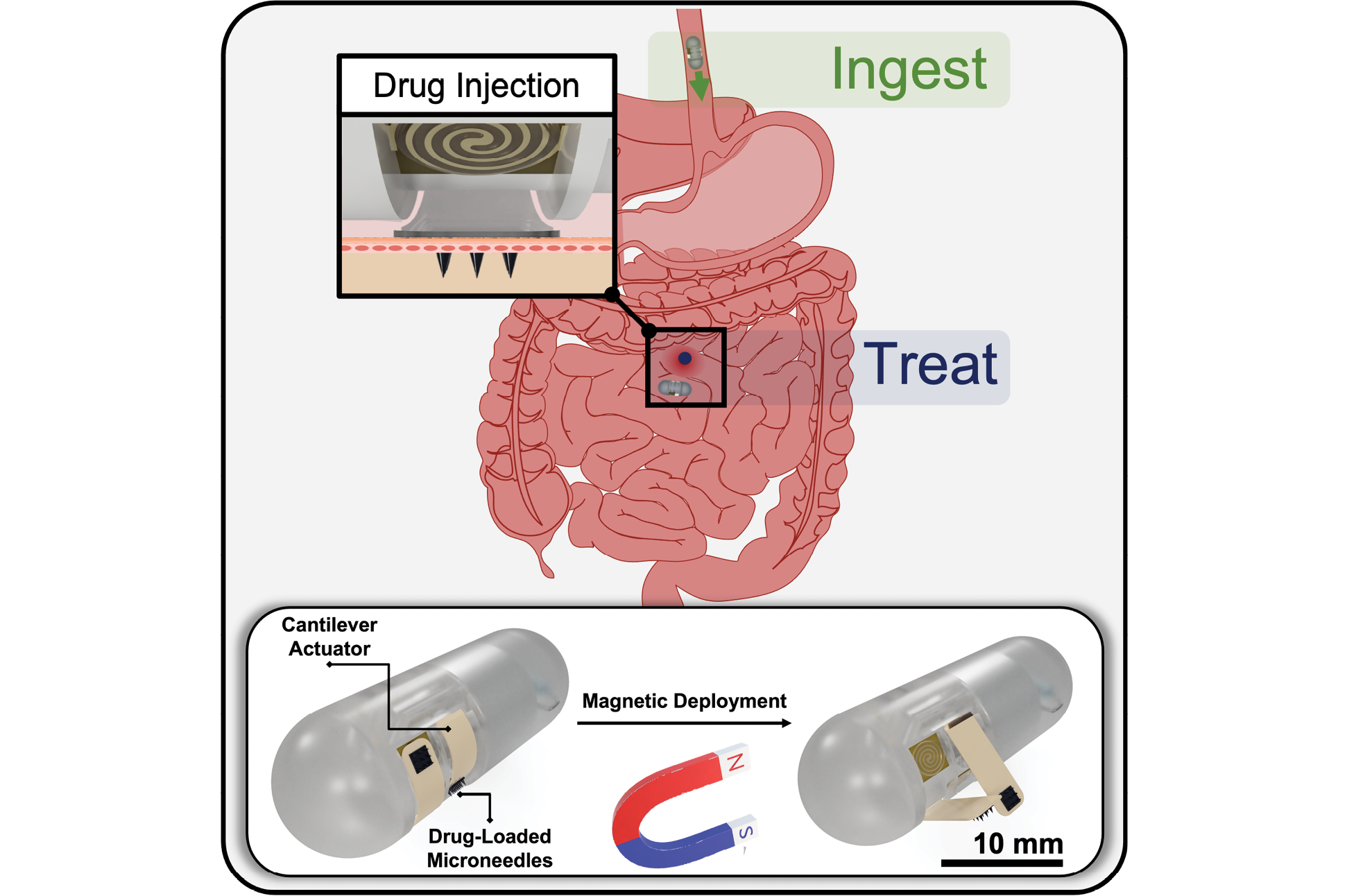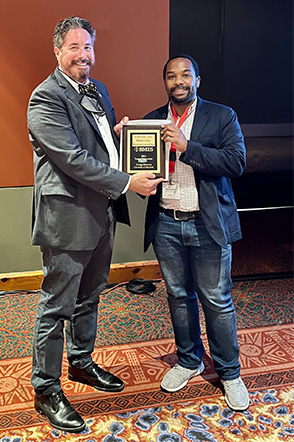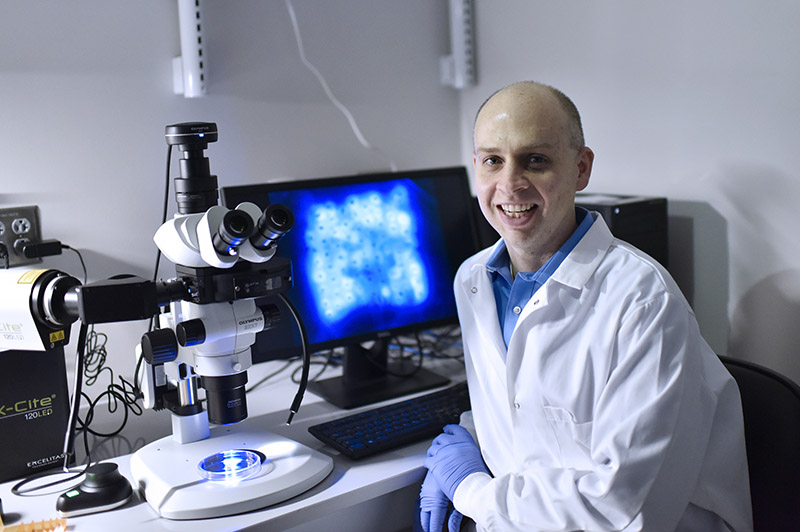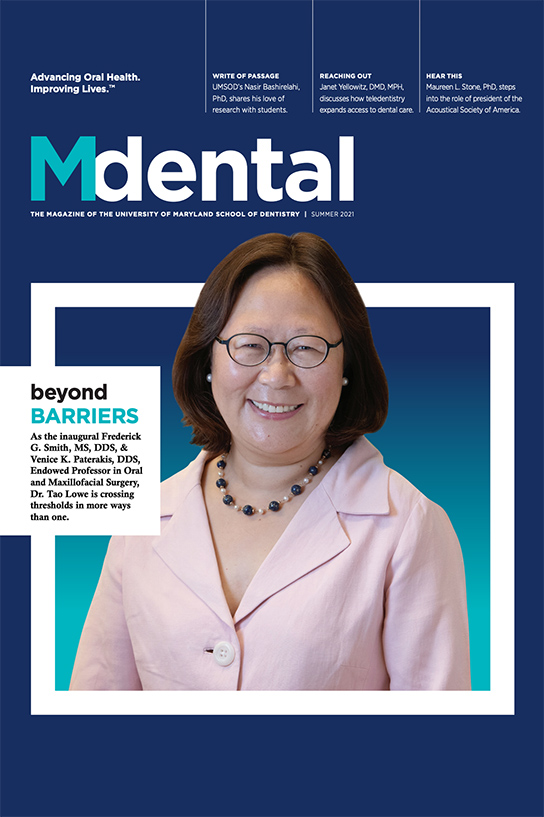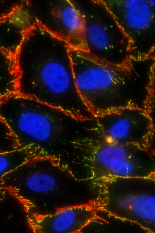News Story
Mukhamedova: HHMI Fellowship Supports System That Could Help Treat MS
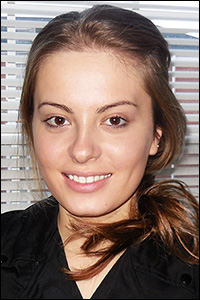
BioE junior Maryam Mukhamedova.
Multiple sclerosis (MS), an autoimmune disease with no known cure, affects hundreds of thousands of people in the United States alone*. MS causes the immune system to unpredictably attack a nerve-insulating protein called myelin as if it were a foreign invader, disrupting communications throughout the central nervous system. Sufferers may experience a myriad of mild to debilitating symptoms, including vision problems, pain, weakness, loss of balance and concentration, and numbness.
Although drugs that suppress the disease's faulty response to myelin are available, they also often suppress the healthy activities of the immune system, leaving patients vulnerable to other illnesses. Many of the drugs are also hydrophobic, making them difficult to be dissolved, dispersed and absorbed in the human body, which is 60-70 percent water.
Clark School Fischell Department of Bioengineering (BioE) junior Maryam Mukhamedova, a member of BioE assistant professor Christopher Jewell's research group, is part of a team developing biomaterials that could help treat autoimmune disorders and infectious diseases by fine-tuning and controlling the body's natural immune system response. Her efforts to find more effective ways to treat diseases like MS recently earned her a Howard Hughes Medical Institute (HHMI) Undergraduate Research Fellowship. The competitive HHMI Fellowship program, co-sponsored by HHMI and the University of Maryland's College of Computer, Mathematical, and Natural Sciences, funds the research activities of undergraduates interested in pursuing careers in medical, biological or life sciences. The program's goals are to immerse students in the investigative process, increase their aptitude for research, and provide them with the opportunity to collaborate directly with a faculty mentor.
Mukhamedova is studying a biomaterial designed deliver insoluble drugs more effectively while selectively promoting immunological tolerance. The system could eventually help treat diseases like MS, in which stopping the specific attacks on myelin without affecting healthy immune system responses would provide an effective course of treatment. Mukhamedova says the use of biomaterials to treat autoimmune disorders has great potential, and she is excited to be part of the field now, in its early stages.
"Knowing that autoimmunity affects so many people across the globe makes me want to alleviate that in any way possible," she adds. "If all goes well, I will be able to add just a little piece to a very big puzzle of autoimmune disease and that itself will give me a feeling of exuberance."
Mukhamedova, who says she "fell in love with science" in the sixth grade, was already an experienced researcher when she joined to the Jewell Research Lab. In 2011-2012, she worked for Department of Biology professor Sergei Sukharev on a project in which she recorded current and ion flow into and out of cells, an experience which she says led her to realize research was something she enjoyed and wanted to pursue. In the spring and summer of 2012, she investigated amylin aggregation and its effect on diabetes under the guidance of George Washington university professor Aleksander Jeremic. That study introduced her to the field of autoimmunity, which prepared her for her current project in the Jewell Group.
"Involving myself with undergraduate research made me appreciate academia and researchers more," she says. "I understand how challenging and satisfying research can be. The best feeling overcomes you when you work on something for so long and finally get long-awaited data…I can’t imagine waking up every day and doing something I dread–that is why it is was so important for me to find my 'niche' during my initial undergraduate studies."
After earning her B.S in bioengineering, Mukhamedova plans to continue her education in a graduate immunology program.
* "Multiple Sclerosis: Hope Through Research." National Institute of Neurological Disorders and Stroke, National Institutes of Health. www.ninds.nih.gov/disorders/multiple_sclerosis/detail_multiple_sclerosis.htm#210763215. Retrieved 7 May 2013.
Published May 8, 2013
